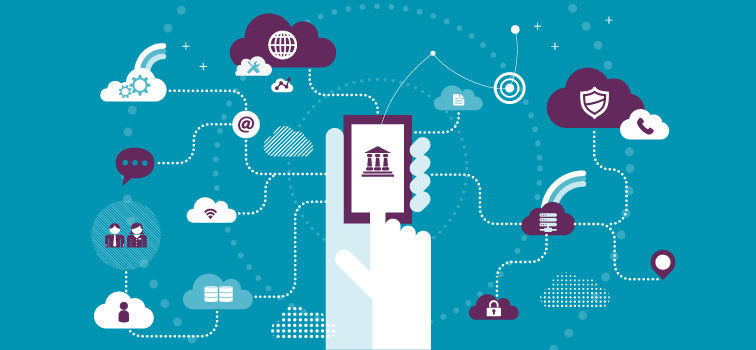Explainer – What do I need to know about “digital-only” banking providers?
 Advances in technology have given us greater access to financial services, particularly when it comes to how we do our day-to-day banking.
Advances in technology have given us greater access to financial services, particularly when it comes to how we do our day-to-day banking.
For example, you can now open an account with a “digital-only” or virtual banking provider, which may not have any physical branches or offices in Ireland.
The provider will typically offer you a payment account and a connected debit card integrated with your smartphone via an app and digital wallet.
This gives you access to the same card and payment services that in the past were traditionally only available from your local bank.
What types of digital-only banking providers are there?
There are two main types of digital-only banking providers:
- A digital-only bank
- A payment institution or an e-money institution
Both offer similar services such as payment accounts with linked debit cards.
However, there are differences in how they are regulated and some of the protections they offer consumers.
Consumer protections compared
All digital-only banking providers must comply with consumer protections that fall under the Payment Services Regulations 2018 and the Amended Electronic Money Regulations 2011.
Along with banks, e-money institutions and payment institutions are required to comply with certain obligations under the Consumer Protection Code as well as rules around account switching.
You can also take a complaint to the Financial and Pensions Ombudsman about a digital-only banking provider.
Where your consumer protections differ is in relation to how your money is protected.
Money held in a digital-only bank is covered by the Deposit Guarantee Scheme (DGS).
The DGS is a compensation scheme which protects your deposits up to €100,000 in the event your bank can no longer pay you back your money.
Money held in an e-money or payment institution is subject to rules around safeguarding of funds.
These are EU rules designed to protect your money in the event of the failure of the institution.
Digital banking providers: consumer protections compared
| Protections |
Banks/digital-only banks |
E-money institutions |
Payment institutions |
| Deposit Guarantee Scheme |
Yes |
No |
No |
| Safeguarding of funds |
No |
Yes |
Yes |
| Access to Financial Services and Pensions Ombudsman |
Yes |
Yes |
Yes |
| Complaints resolution |
Yes |
Yes |
Yes |
| Switching options |
Yes |
Yes |
Yes |
These obligations exist regardless of whether the digital banking alternative is authorised by the Central Bank of Ireland or another EEA state and passporting its services into Ireland.
How can I check if my digital-only banking provider is a bank, payment institution or e-money institution?
To check if your provider is a bank, payment institution or e-money institution, you can check our register, which has details of firms authorised by Central Bank of Ireland.
For a provider that is passporting its services into Ireland from another EEA country, its terms and conditions should clearly identify the country in which it has been authorised and the national competent authority that has authorised it.
The national competent authority of that country should have details of the type of institution on its registers.
See also: